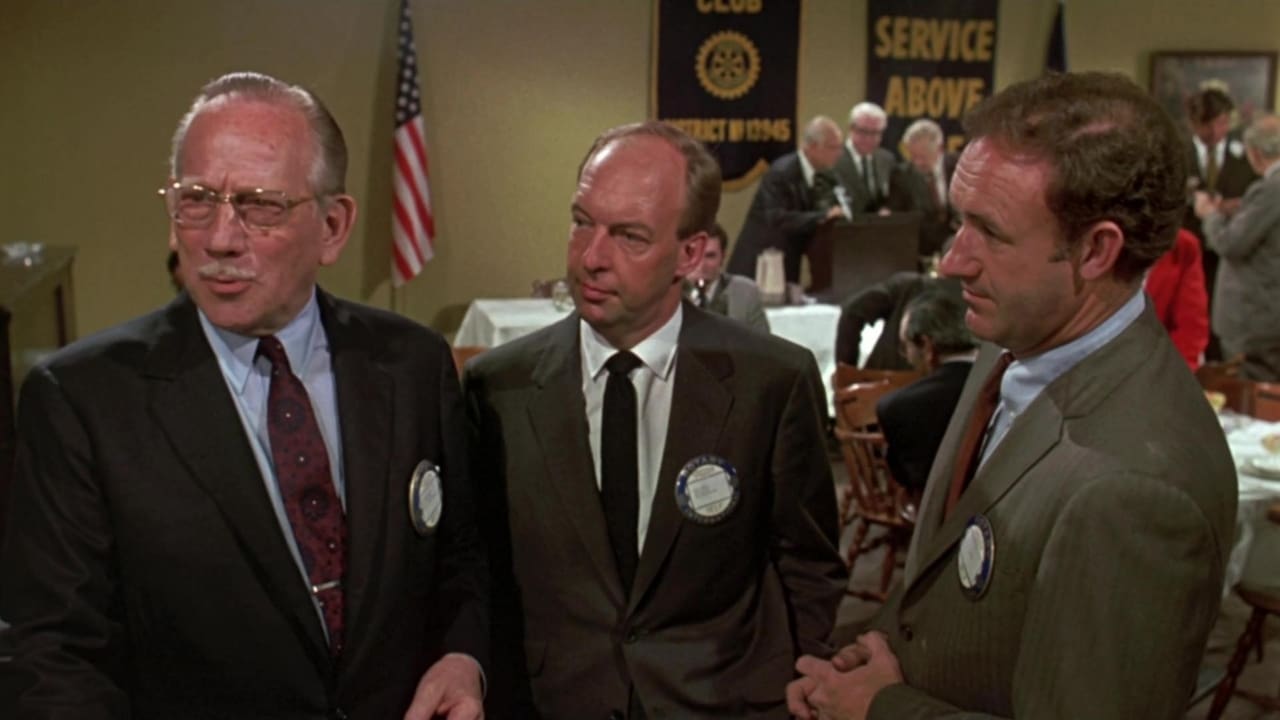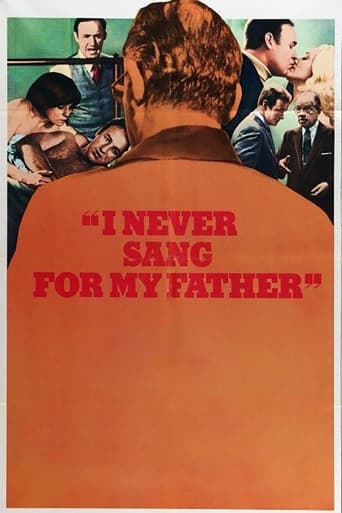

The aging Baby-Boomers are faced with exactly the same issues that Gene Garrison and his sister faced in 1970. We are part of the "sandwich generation", caught between caring about our own kids and our aging parents .Our parents are living longer because of new medicines but with what quality of life? A question a doctor tells Gene in the film. We are forced to decide when our aging folks have to start giving up some freedoms, like driving a car. When is the time to put them in assisted living or a nursing facility. Anyone in their 50's or 60's faced with these issues will understand this movie and maybe it will help them face the choices they are forced to make.
... View MoreThis outstanding movie about a strained father-son relationship has some of the finest character acting I have ever seen. Gene Hackman is the dutiful son trying to bridge the distance between himself and his father, performed superbly by Melvyn Douglas, who has become senile and stubborn. The two were never close. In one scene, they look at some old family photos and the son tells his father that for a few short moments, he felt closer to him than at any time in his life. The thaw is short-lived. When Hackman and his sister reunite for the funeral of their mother, the conflict reaches a climax. They know that their father cannot continue to live on his own. The sister, Estelle Parsons, who became estranged from the parent years earlier, faces the dilemma head on... the father must be told he needs someone to look after him, a service he can well afford. Hackman, however, wants to make it easier for the elderly man and offers to take his father to the the west coast, where he plans to marry and begin a new life. Douglas will have nothing to do with the plan. He wants to stay put while insisting that the son stay with him. The sister, knowing the dilemma cannot be resolved, advises the brother to go and make a new life for himself. The end of the movie is difficult but probably true for many others in the same dilemma. A decision is made, time moves on but the relationship can never be severed.
... View More...the idea that the family is in trouble long before the scene opens, by way of the title.I think the pivotal idea is in how each of us remembers certain events in life. The father remembers the relationship in one way, the son in another. Old age and parents experiencing end of life issues, families in turmoil - topical for today's baby-boomers.I would strongly recommend viewing it. I believe I saw it in 1971 when it appeared in theaters. Sad and sardonic, it plays to everyone or anyone who has had to take care of a parent with whom times were not always bright and sunny. In fact, relationships take on such dark, shadowy aspects it is too easy to get lost in the depths of remembered despair. I think Hackman's character shows sufficient torment - "do I love him or hate him for being the sad character he is now or for what I remember of him as a kid?" Which, if you are like others, the latter will be the more likely choice. We struggle with our consciences the whole of our lives, but even when the other dies, the object of our contention, we are still racked with guilt.
... View MorePerhaps that takes a bit of explaining, but seeing people get in cars without putting on seat belts was kind of a shock. I guess I'm just too used to today.the movie wasn't bad but kind of a hackneyed story. Mom is great, but dies; Dad is hard hearted but tries to pass it off as 'taking care of the family.' A bit hokey when the old man cries (I actually think it was intended to look phony), as he is really a hard guy. No one could 'love' that SOB.
... View More